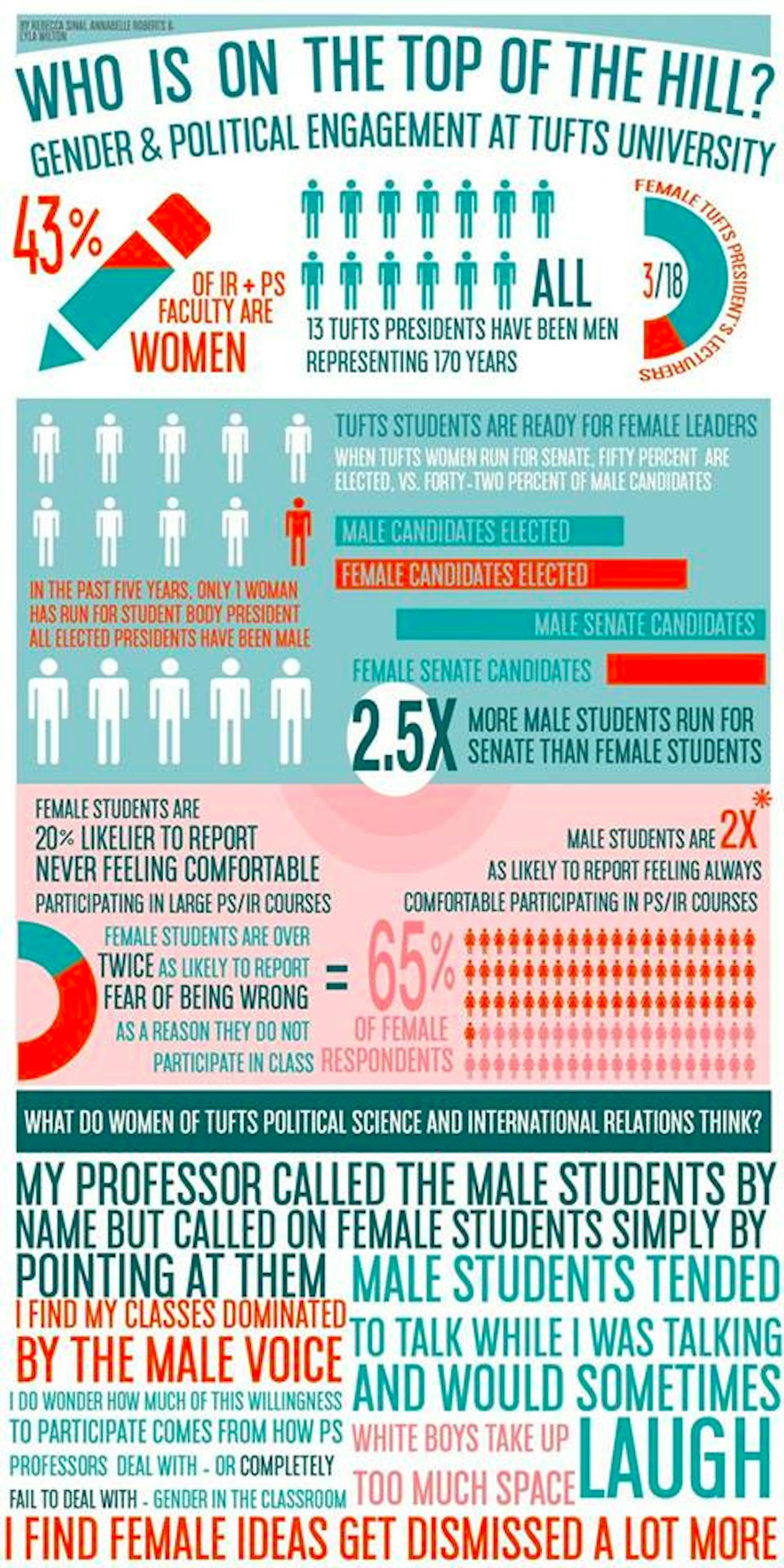From Tufts Democrats to Tufts Debate Society, the male to female ratio in many Tufts clubs is hugely lopsided. While there is no central database for students enrolled in each club, many club leaders have stated their male to female ratio is as high as six to one. This problem extends to even our representatives in the student government. The TCU website reports that only ten of the 27 current Senators are women, while only one woman has run for TCU president over the past five years. Plus, all five of those elected have been male.
"Who is on the top of the Hill?", an infographic created by Lyla Wilton using research collected by Rebecca Sinai, Annabelle Roberts, herself and additional political science student researchers at Tufts, shows gender disparities within the department. According to their research, women tend to feel less comfortable in large classes. This phenomenon may also get carried over to on-campus clubs. But what’s causing this problem at its core? One cause may be Imposter Syndrome, which is a social symptom that can affect women in large numbers. It is characterized by one's feeling of not deserving success and the fear of being deemed as an unworthy fraud by others. This affects how women can feel welcome or unwelcome in club leadership and leadership off-campus, too. The second problem, however, is positive feedback. When a club is mostly made up of male upperclassmen, first-year female students often don't feel as comfortable or welcomed. That is not to say that no women join the club, but these social reactions certainly inhibit the ability of a club to balance out the gender ratio and rectify the problem.
Participating in on-campus clubs is one of the main ways in which students can influence the dynamics of life on campus, by voicing their views and opinions. By not creating an actively welcoming community for women, clubs with a lopsided gender ratio take away valuable voices and paralyze women's positive contributions.
Some may claim that there are plenty of all-women clubs on campus. If they want to have a voice in the comedy community, for example, why not just join Tufts Funny Women? The all-female groups on campus do great things for our community, but it would be misguided to state that women who do not feel welcomed in co-ed groups should only stick to the all-female ones. The experiences and opportunities in co-ed and single-sex clubs are complementary and not substitutable. Membership in most on-campus clubs should not pose the problem of mutual exclusivity.
Therefore, we need to have greater awareness of the gender imbalance as well as greater representation in our university leadership to render greater visibility to women in our clubs. Women faculty members are still underrepresented in many departments, from Engineering to International Relations. Having more faculty, staff and student leadership roles for women at Tufts can help remove the perception that women aren’t leaders as often as men, which can help diversify our clubs, our representatives and our classrooms. Clubs should be encouraged to make female members feel welcomed at the beginning of the school year. Many club leaders have reported that having a “Ladies Night” various times early on in the school year helps female first-years feel more welcomed and appreciated. As such, the retention rates for women in these clubs has increased. It’s time for club leaders to step up to make Tufts a more inclusive learning and living environment for all of us.
Editorial: Gender imbalances in student organizations






